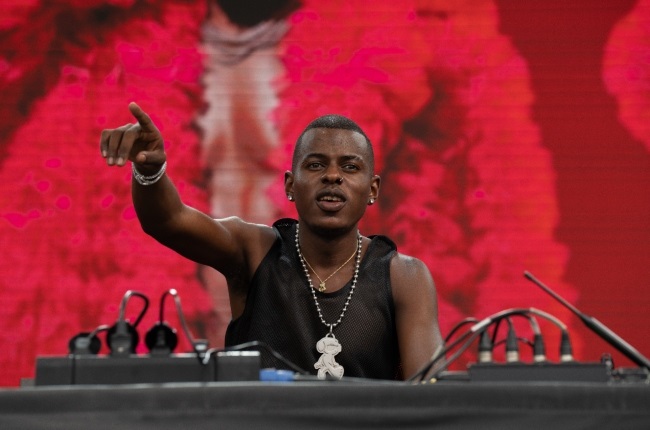
The weekend began on a high note for South Africans.
With all the wins we have scooped on international stages, from the arts and entertainment to sports, we have gone on to prove that we can scoop more.
As Grammy nominations were announced on Friday, celebrations horns went off for Tyla and Musa Keys who made the cut alongside Davido for the Water and Unavailable hit songs, respectively.
Speaking to Drum about having his eyes on the prestigious award before he could know if he made the cut or not, Musa Makamu says he made a promise to himself to win the award when he started making music.
“From the year that I’m going to win a Grammy, I will win a Grammy every year going on.”
While he aims for a Grammy, he also wants to give back to his province in the best way he knows how – with a homecoming music festival.
“Ever since I started becoming super active [in the music industry] three years ago, I’ve never really stopped or went home to give back or have a show just to show people back home what I think the best version of me is. It’s just been my dream also to sell out arenas, to sell out stadiums. I love giving people an experience, that’s where I’m going with my brand.”
Musa says he might even stop performing at clubs and only stick to outdoor venues because that’s where people have the full experience of his performances.
Read More | Meet Musa Keys, the amapiano star who calls himself the Tsonga Michael Jackson
Planned on the back of the fact that “nobody loves going home like people from Limpopo during the festive season”, the inaugural Detty December festival is set to welcome over 40 000 people at Peter Mokaba stadium on 27 December.
“I haven’t dropped music of my own for two years and I’ve still been relevant in that two years. I was able to gig more than when I was actually making my own music, the way I have branded myself, I would call it timeless. It’s super consistent and super present in whatever time it is, even if you play my music today, you will steel feel like it’s new. I’m a person who believes in building a long-term relationship with my music, I want my music to still take care of me 10 years from now,” he tells Drum.
His musical journey started in church when he was in grade seven.
He remembers it vividly.
One of his friends had invited him to the youth band rehearsals which were on Thursdays. When he arrived, his interest was piqued by the piano and before he knew it, he was being taught how to play it.
“I just found the piano quite interesting. Also, they made it look like the simplest thing to play so I was like great! I started doing lessons with [the person who was in charge of the piano department] and then I became better. I started making cover videos, so I used to play songs on the piano, uploaded the videos on YouTube and then a friend of mine who’s also an artist, Caltonic SA, hit me up."
Affectionately known as Musa Keys, the music producer from Limpopo was then introduced to a different kind of Amapiano by Caltonic SA as compared to the one he would hear from DJ Jaivane’s musical experience mixtapes, which were his primary exposure to the genre at the time.
The two friends found themselves making a song together which became a hit on Musa’s whatsapp status instantly.
When he realised how much the people loved the song, he took some time out to explore what else he could do with the sounds of Amapiano.
Read More | New songs, diverse heritages promise to keep revellers dancing all night at Limpopo festival
“It was still the beginning of my first year when I met Caltonic so I was still at home. When he called me, I was maybe like two weeks away from leaving Polokwane to move to Pretoria from school. I then moved to Pretoria to a school called Damelin, where I was studying sound engineering. I made friends who were in second and third years because I was a junior at the time and so I couldn’t book the studio because first year students were not trusted with the equipment because they didn’t know much yet.
“So, I made a friend who then booked the studio, and I attended the session. I went in there and recorded some keys on some songs that Caltonic had sent me. When I was chilling with the musical projects, I was kind of learning how to produce the music; what’s this sound, what’s making it sound like that, so I started experimenting and listening to a lot of Amapiano music,” he adds.
Around this time, Kabza De Small and DJ Maphorisa dropped their first Scorpion Kings album in 2019 and he began following the duo for some inspiration and to continue learning the versatility of the sound.
“I’ve always been a student of the game and a student of the sound. I’m always constantly trying to find ways to make certain things work and how to make myself unique in the music that I do.”
After he dropped a few vibey songs which he would perform at venues where he was getting booked, he started working on his image as a brand out of the realization that people might know his songs and not his face.
When he started making some bit of a money and his career picked up, he would reinvest back into how he looks and how he sounds to people.
He tells Drum that a large chuck of his time coming up, he dedicated himself to learning how to do everything by himself, hence why he’s a “one-man army band”. From recording his songs, to mixing, mastering and managing himself, he does it all.
Somewhere in the mix, his first hit single Samarian Boy dropped after he had just dropped out of school because “I found school boring”.
When the hit song dropped, the musician was in the process of learning how to write and project himself through music as he was initially making music for vibes and never really wrote lyrics for the songs because he considered himself as just a producer.
As time went by and he struggled to connect with vocalists because their lyrics would not bring the feeling he wanted in songs, he just decided to do it himself.
“I just record random melodies that I think sound amazing in a song then I chill and start thinking about what it is that I want to send out to people. Back in those days, I didn’t overthink it because it just vibes but now in the space that I’m in, every song that I make is intentional in taking out a message that’s why I can spend weeks without doing studio time because I just feel like I haven’t found the reason to give out a specific message. I have to go through something, whether good or bad, for me to be inspired to write about the experience,” he explains his songwriting process.
He adds that in all his messaging through his songs, he says he wants people to listen to them and feel like there’s always life even if everything is not going well for them - they must know that there can be a better ending if one believes in it.
In October, the Amapiano star won the award for best collaboration of the year alongside Davido with their hit song, Unavailable, at the Trace Music Awards.
Recently, the Giyani-born artist was at loggerheads with his former recording label and music distributor, Ingrooves after he was slapped with a R700 000 bill for giving a notice of contract cancellation which was deemed invalid. Although he won the case and got Ingrooves to reimburse him more than R450 000, he says the biggest mistake that upcoming artists make is not having direction.



















